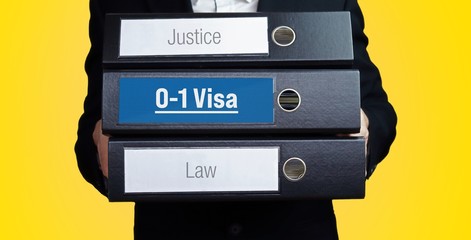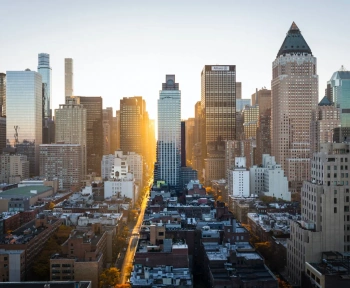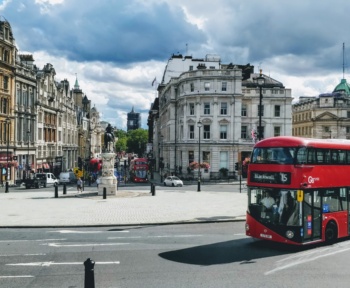The O1 visa is a nonimmigrant visa category in the United States designed for individuals with extraordinary ability in various fields. It requires outstanding achievements and national or international recognition in areas such as science, education, business, athletics, or the arts. To qualify, applicants must provide evidence of major significance, including major trade publications, major media coverage, scholarly articles, or internationally recognized prizes. They should also have a distinguished reputation and substantial remuneration in their field. An O1 visa application may require a written advisory opinion from a peer group or a government agency. Recognition and achievements substantially above others in the field are critical for a successful visa interview.
What is the purpose of O1 Visa?
The purpose of the O1 Visa is to allow individuals with extraordinary ability in various fields to work in the United States. This visa category is intended for individuals who have achieved national or international recognition and have demonstrated outstanding achievements. Applicants must provide substantial evidence of their extraordinary ability, which can include major trade publications, major media coverage, scholarly articles, or other reliable materials. They must show that they have received significant recognition, such as major internationally recognized awards or critical reviews. In some cases, a written advisory opinion from a peer group or government agency may be required. The O1 Visa is designed to attract individuals with exceptional talent and accomplishments to contribute to the fields of arts, sciences, education, business, athletics, or other occupational achievements.
The CGM App is designed for expats, sponsoring companies and business immigration advisors. Click here to get started
Who is Eligible for an O1 Visa?
To be eligible for an O1 Visa, individuals must demonstrate extraordinary ability in their field. This applies to various categories such as science, education, business, athletics, arts, and more. The eligibility criteria include:
- Extraordinary Ability: Applicants must provide evidence of sustained national or international acclaim, proving that they possess exceptional skill or expertise.
- Recognition and Achievement: This can be demonstrated through major internationally recognized awards, membership in prestigious organizations, or critical reviews.
- Essential Capacity: The applicant must show that their services are critical or essential to the successful operation of the specific project or event.
- Supporting Evidence: Applicants should provide documentation such as published materials, media coverage, scholarly articles, and letters of recommendation from experts in the field.
- Advisory Opinion: A written advisory opinion from an appropriate peer group or labor organization is often required to support the applicant’s extraordinary ability claims.
It’s important to note that the eligibility requirements may vary slightly depending on the specific field and nature of work.
Difference Between an O1A and O1B Visa?
The O1A and O1B visas are two subcategories of the O1 visa, each with its own specific criteria and eligibility requirements:
- O1A Visa: The O1A visa is for individuals with extraordinary ability in the sciences, education, business, or athletics. It requires demonstrating sustained national or international acclaim and extraordinary achievements in their respective fields. Evidence may include major trade publications, scholarly articles, published materials, or significant recognition such as major internationally recognized awards. The O1A visa is for those who have achieved recognition substantially above others in their field.
- O1B Visa: The O1B visa is for individuals with extraordinary ability in the arts, specifically in the motion picture or television industry. This category encompasses actors, actresses, and other artists. The applicant must show extraordinary achievement and distinction in their field, as evidenced by critical reviews, box office receipts, major media recognition, or significant awards. The applicant should have a lead or starring role or a reputation as an essential contributor in the motion picture or television industry.
While both O1A and O1B visas require extraordinary ability and national or international recognition, the key distinction lies in the specific fields of expertise—O1A encompasses sciences, education, business, or athletics, while O1B focuses on the arts, particularly motion picture or television industry.
How to Apply for an O1 Visa
Once you meet the criteria for extraordinary ability, the next step is to formally apply to the U.S. Citizenship and Immigration Services (USCIS). This involves presenting compelling evidence to support your case and attending a visa interview at a U.S. Embassy or Consulate abroad.
The initial phase of the application process entails having a U.S. company submit a visa petition on your behalf. This company can be your employer or a U.S.-based agent if you will be working in the U.S. for a foreign company.
To establish your eligibility for the O-1 visa, the petitioner must submit Form I-129 along with supporting evidence. This evidence should demonstrate that you have secured employment in your field of extraordinary ability within the U.S.
The CGM App is designed for expats, sponsoring companies and business immigration advisors. Click here to get started
How much is the O-1 visa application?
When individuals with extraordinary ability or achievements apply for an O1 visa, the expenses involved consist of two main components. First, there is a non-refundable filing fee of $460 for submitting Form I-129, Petition for Nonimmigrant Worker. Once the petition is approved, a second fee of $190 is required to file Form DS-160, which is part of the visa application process. It is important to note that these fees are subject to change and it is advisable to verify the current fees on the official U.S. government websites or consult with an immigration attorney for the most up-to-date information.
What is the processing time for O1 Visa
The processing time for an O1 Visa can vary depending on several factors, including the workload of the U.S. Citizenship and Immigration Services (USCIS) and the specific circumstances of each case. As of my knowledge cutoff in September 2021, USCIS did not provide specific processing times for the O1 Visa on their website.
However, generally, the processing time for the O1 Visa can range from a few weeks to several months. It is advisable to submit your application as early as possible, as processing times can be unpredictable and may be subject to fluctuations.
For a more accurate estimate of current processing times, it is recommended to visit the USCIS website or consult with an immigration attorney who can provide the most up-to-date information based on recent trends and experiences.
How Long Does an O1 Visa Last
The O1 visa lasts for up to three years and can be extended for one year increments. Similarly, a beneficiary of an O1 visa may be admitted into the United States on an initial three-year duration and receive extensions for up to a maximum stay of six consecutive years.
O-1 visa evidentiary Requirements
Furthermore, it is essential to fulfill the “consultation” requirement, which involves obtaining an “advisory opinion” regarding your application. If there is an appropriate peer group within your field of expertise in the United States, you may be required to seek their assessment of your qualifications and achievements to determine if you meet the extraordinary ability criteria.
In cases where a comparable peer group does not exist in the United States, the U.S. Citizenship and Immigration Services (USCIS) will evaluate your extraordinary ability based on the documentation you submit. They will assess your qualifications and achievements directly without relying on an advisory opinion from a specific peer group.
O-1A Evidentiary Requirements
To establish the eligibility of O1 visa applicants with extraordinary ability or achievement, petitioners must furnish substantial documentation specific to O1 requirements, which vary depending on the specialized field.
In certain cases where exact documentation cannot be obtained, comparable evidence may be provided instead. The crucial aspect is for the petitioner to present the documentation in a manner that collectively demonstrates, to the satisfaction of USCIS, that the beneficiary meets the requisite standard for O1 classification.
For an O-1A petition, evidence must be provided to show that the beneficiary has either received a major internationally recognized award, such as the Nobel Prize, or at least three of the following alternative forms of evidence:
- Receipt of nationally or internationally recognized prizes or awards in their field, including those bestowed by distinguished national institutions and professional associations.
- Membership in associations within the beneficiary’s field that mandate outstanding achievements, as assessed by acknowledged national or international experts.
- Publication of material about the beneficiary in professional or prominent trade publications, major media outlets, or scholarly articles related to their field, including details such as titles, dates, authors, and any required translations.
- Participation by the beneficiary as a panelist or individual judge in their field or a related specialized area.
- Original and significant contributions in the beneficiary’s specialized field, be it scientific, scholarly, or business-related.
- Authorship of scholarly articles in professional journals or other major media within the specialized field.
- Verification of current or past critical or essential employment undertaken by the beneficiary for renowned organizations or establishments.
- Evidence of high salary or substantial remuneration received or offered for the beneficiary’s services, supported by contracts or other reliable means.
By presenting the appropriate documentation, petitioners can effectively demonstrate the extraordinary ability or achievement of the beneficiary, thereby enhancing the chances of a successful O1 visa application.
The CGM App is designed for expats, sponsoring companies and business immigration advisors. Click here to get started
Extraordinary Ability in Science, Education, Business, or Athletics
Extraordinary ability in the fields of science, education, business, or athletics is a key criterion for the O1 visa, reflecting the exceptional talents and achievements of individuals in these areas. It requires individuals to demonstrate outstanding accomplishments and national or international recognition substantiating their extraordinary ability.
To meet the eligibility requirements, applicants must provide compelling and reliable evidence of their extraordinary ability. This evidence may include major trade publications, scholarly articles, comparable evidence, or other published materials showcasing their significant contributions to their respective fields. International acclaim, major significance, and major media coverage further strengthen their case.
Recognition substantially above others in their field is vital, as evidenced by prestigious awards, significant national or international acclaim, or substantial remuneration. Outstanding achievements, demonstrated through lead or starring roles, significant contributions to business or athletics, or exceptional educational accomplishments, further establish the extraordinary ability.
Written advisory opinions from appropriate peer groups, government agencies, or recognized management organizations are often required to support the claims of extraordinary ability. Critical reviews, box office receipts (in the case of motion picture or television industry), and testimonials from international experts can provide additional validation.
The sustained national or international reputation of the applicant, along with other occupational achievements reported, contributes to the overall assessment of extraordinary ability. During the visa interview, applicants must articulate their achievements, the impact of their work, and their plans for future contributions to the field.
In conclusion, individuals with extraordinary ability in science, education, business, or athletics who seek an O1 visa must present a comprehensive portfolio of evidence, demonstrating their exceptional achievements, recognition, and significant contributions in their respective fields.
Conclusion
In conclusion, the O1 visa serves as a vital pathway for individuals with extraordinary ability or achievement in various fields to pursue opportunities in the United States. The application process requires extensive documentation that substantiates the applicant’s exceptional qualifications.
The evidentiary requirements encompass a range of factors, including national or international recognition, major trade publications, significant awards, scholarly articles, business contributions, critical reviews, and more. The petitioner must showcase evidence of outstanding achievements in a manner that establishes the beneficiary’s distinguished reputation and extraordinary ability.
While a major internationally recognized award can fulfill the extraordinary ability criterion, alternative forms of evidence can also be presented. Comparable evidence, along with comprehensive documentation, enables petitioners to meet the O1 visa’s eligibility standards.
Through the evaluation of the totality of the evidence submitted, USCIS determines whether the beneficiary qualifies for O1 classification. This evaluation includes consideration of the beneficiary’s essential capacity, sustained national or international acclaim, and significant recognition within their field.
Ultimately, the O1 visa provides a pathway for talented individuals to contribute their extraordinary abilities to the United States, fostering innovation, cultural exchange, and professional development. It allows them to pursue their aspirations and make meaningful contributions in fields ranging from science, education, and business to athletics and entertainment, thereby enriching the diverse fabric of American society.
Frequently Asked Questions
[faq-schema id=”226043″]



